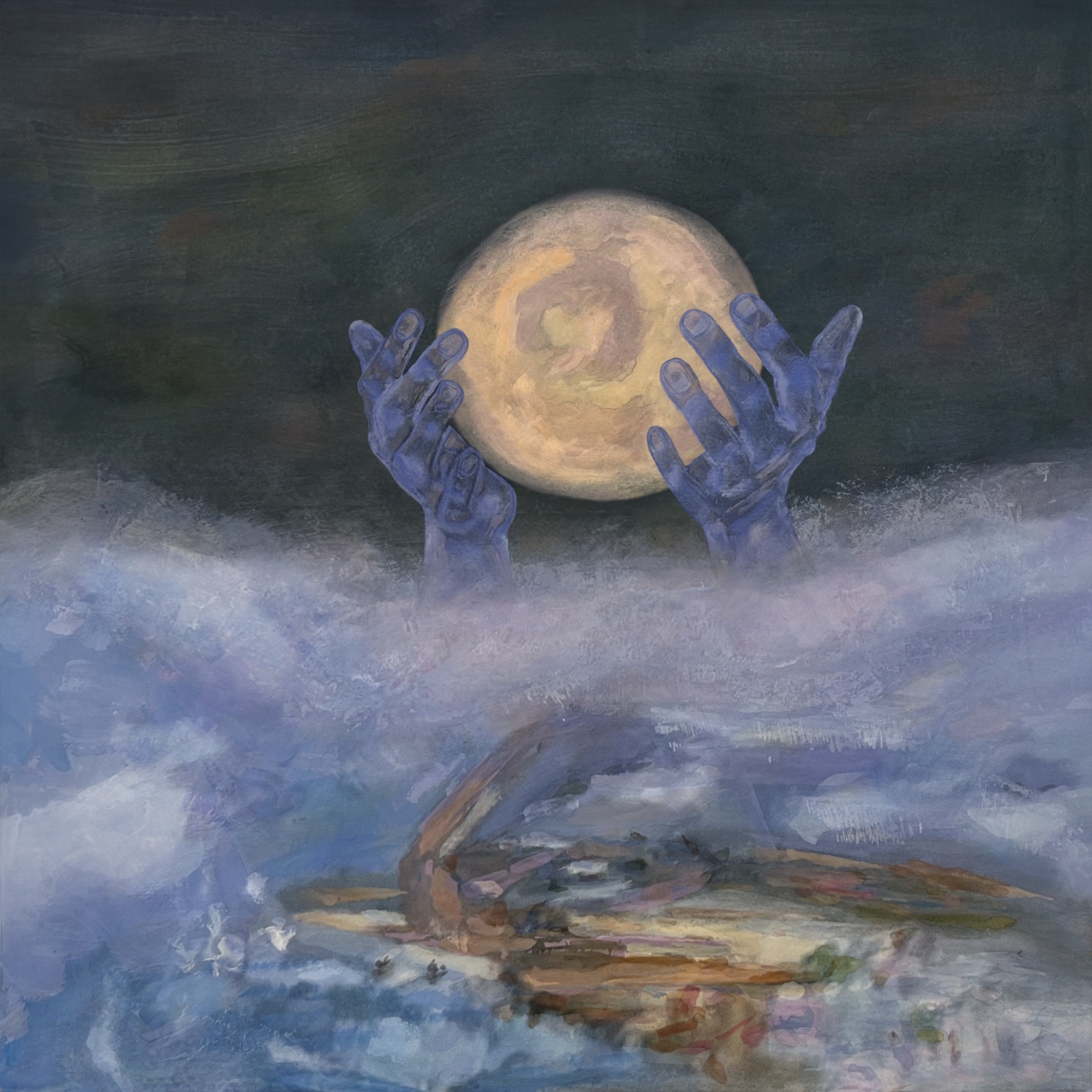The Guest List is a regular book column that surveys the reading habits of our favorite musicians. In this edition, Emily McBride talks with Cam LaFlam from Great Grandpa. Great Grandpa’s latest album, Patience, Moonbeam, is out now via Run for Cover Records.
Emily McBride: What are some books that kick-started your love of reading?

Cam LaFlam: From a young age, books and reading have played a large part in anchoring my imagination. One of my grandfathers wrote multiple children’s books. There was a one in particular as a kid called The Magic Kriss Karpet [by K. K. Corner] that I’ve still got around. It’s a Christmas story. It was actually republished about a decade ago for the twenty-fifth anniversary. When they did that reissue, they called it The Magic Christmas Carpet. [My grandpa] was a great influence in my life, both through books and otherwise. Seeing that my grandpa was a writer made a strong impression.
I was huge into the Goosebumps books [by R. L. Stine] at a certain age. I think as a kid, the covers themselves caught my eye. And then the horror and imaginative elements caught my attention. The first few Harry Potter books—ironically, somehow, I never actually finished the series—but I was around the same age as the Harry Potter character. I remember, at least with the first three books or so, one would come out, and I would just basically read it the entire day until I finished it. I think that was often the case with new books I would get as a kid. If I liked it, that was my day, basically.
EM: You own and operate a used bookstore in Seattle called Paper Portal. Tell me about that.
CL: I taught middle and high school English for a number of years, and during part of that time, I started doing a bit of bookselling online. Just happened really organically, picking up what I thought were compelling books at thrift stores and selling them on Instagram, and then starting pop-ups around Seattle. Then an opportunity came up with a space, and I just took the leap and went for it. The physical bookstore opened [in] spring 2023, and it was really rewarding and fun and community-centered. As a first-time business owner, I had my challenges. Ended up closing the brick-and-mortar just a few weeks ago, actually, but still going to be doing some bookselling online.
When I was still teaching, I had the chance to co-teach a high school class with another teacher. We called it Visions of the Future, and we read a mix of speculative fiction. I remember discovering the really fantastic anthology Dark Matter: A Century of Speculative Fiction from the African Diaspora [ed. Sheree Renée Thomas], as well as Natasha Marin’s Black Imagination[: Black Voices on Black Futures], both books that I recall impacting me and the class as well. Black Imagination, I think, originally was an art exhibition in the Seattle area that I didn’t have the chance to see at the time. But then it was developed into a book with Black writers responding to three prompts: “What is your origin story,” “How do you heal yourself,” and “Imagine a world in which your loved, safe, and valued.” Bringing some of that into the classroom felt important.
EM: Who are some of your favorite authors of all time?
CL: I could probably answer that differently every week. I’m a major Le Guin fan. She’s a writer that, in recent years, has often been on my bookshelf. I never really had the chance to read Le Guin growing up, like some early readers did with her Earthsea series. But I discovered her writing as an adult. Books like The Dispossessed are ones that I’ve read multiple times and that really had an impact in terms of her style and the ideas they explore. That one in particular is fascinating. Both a literal and figurative journey of a physicist between an Earth-like world and an anarchist society. The prose is deceptively simple and it’s all so illuminating.
James Baldwin is another writer who—in the five or so books that I have read—has such clarity and commitment to his writing. The depth of feeling, the exploration of characters and how their lives intertwine—just an amazing writer. I recommend the short story collection Going to Meet the Man; If Beale Street Could Talk is another, and the novel Just Above My Head.
One other writer that comes to mind—although I’ve only read one book of hers so far; I have a couple more that are at home and on my TBR list—is Olga Tokarczuk. She’s the author of The Books of Jacob and Drive Your Plow over the Bones of the Dead, but the one I’ve read a couple times is Primeval and Other Times, which is from the ’90s. It has an incredible mythic or fable-like quality to it and is told in form of vignettes. It takes place over most of the twentieth century in this small town. I read it a few years ago, and then reread it more recently.
EM: What are your favorite books about music?
CL: I finally read the essay collection They Can’t Kill Us until They Kill Us by Hanif Abdurraqib, which I really liked. Such a beautiful perspective in his writing about music and the role it’s played in his life. That was certainly one that I had known about for some time, and definitely had been wanting to read. He had a new book that came out last year called There’s Always This Year: On Basketball and Ascension that sounds really interesting. It’s about NBA basketball, which I’ve gotten more into watching lately.
I also remember stumbling on a book—I think I read it and ended up selling it in the bookstore—called Der Klang der Familie: Berlin, Techno and the Fall of the Wall by Felix Denk and Sven von Thülen. It was an oral history about techno music in Berlin after the fall of the Berlin Wall. I knew nothing about that moment in music and cultural history.
EM: What are you reading right now?
CL: I just started reading The Language of the Night by Ursula K. Le Guin. It’s an anthology of essays of her writing on fantasy and science fiction. Le Guin on her own writing, and other forms in general. I recently read The Rings of Saturn; I hadn’t read any W. G. Sebald until this one. A really interesting combination of a narrator wandering around Suffolk and these interesting, mindful observations about the things the character encounters. I also started reading a novel called Elita by Kirsten Sundberg Lunstrum. A mystery/noir set in the 1950s Pacific Northwest. It’s a really compelling story so far.
Emily McBride is a music writer, previously serving as an editor at Paste Magazine and YouTube Music, as well as a freelance contributor to Consequence and Noisey. She currently resides in Portland, Maine and is on a lifelong quest to find the perfect michelada.

